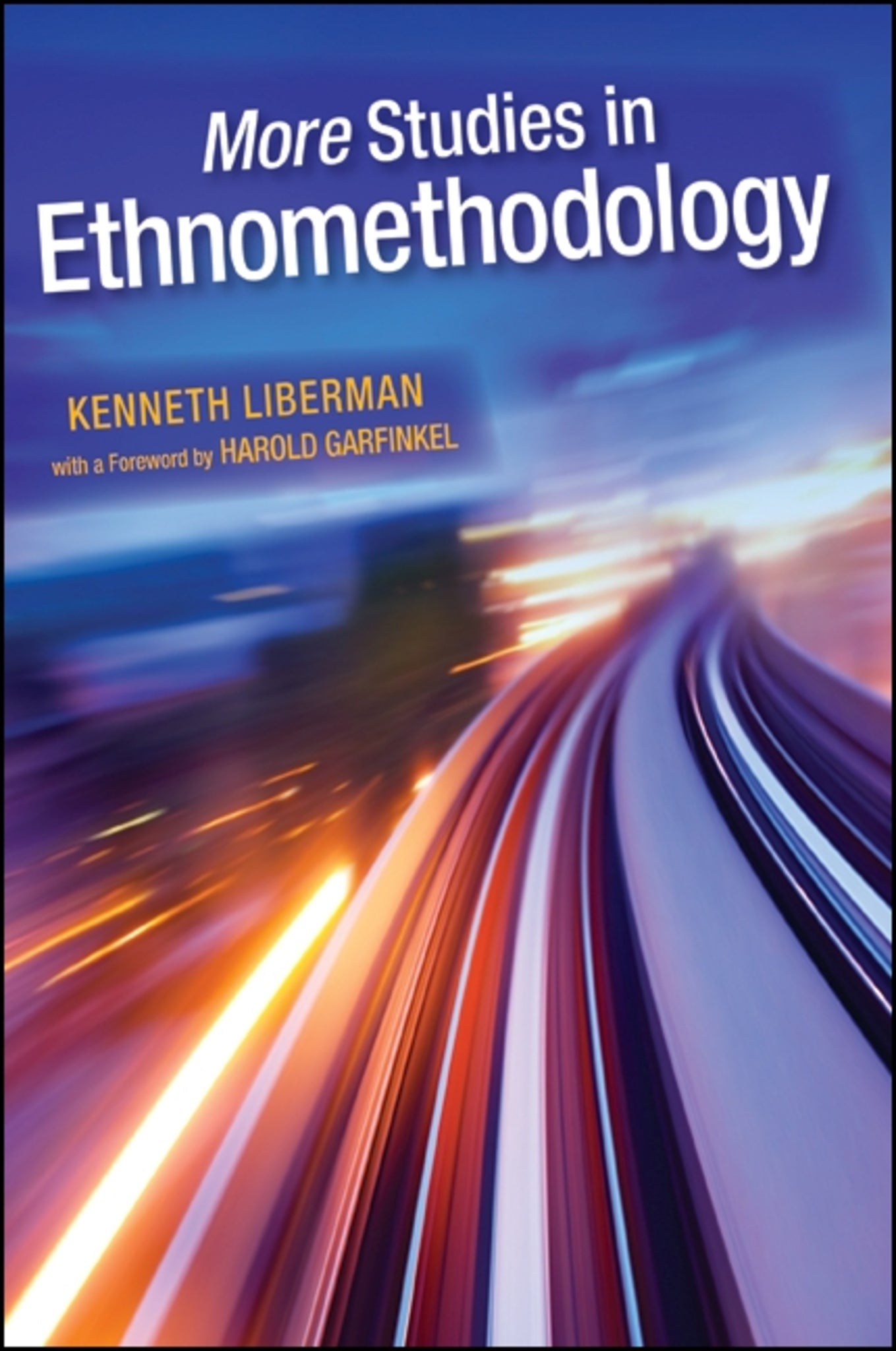We're sorry. An error has occurred
Please cancel or retry.
More Studies in Ethnomethodology

Some error occured while loading the Quick View. Please close the Quick View and try reloading the page.
Couldn't load pickup availability
- Format:
-
01 May 2013

Phenomenological analyses of the orderliness of naturally occurring collaboration.
Winner of the 2015 Distinguished Book Award presented by the Ethnomethodology and Conversation Analysis Section of the American Sociological Association
Winner of the 2015 Distinguished Book Award presented by the Ethnomethodology and Conversation Analysis Section of the American Sociological Association
Pioneered by Harold Garfinkel in the 1950s and '60s, ethnomethodology is a sociological approach rooted in phenomenology that is concerned with investigating the unspoken rules according to which people understand and create order in unstructured situations. Based on more than thirty years of teaching ethnomethodology, Kenneth Liberman-himself a student of Garfinkel's-provides an up-to-date introduction through a series of classroom-based studies. Each chapter focuses on a routine experience in which people collaborate to make sense of and coordinate an unscripted activity: organizing the coherence of the rules of a game, describing the objective taste of a cup of gourmet coffee, making sense of intercultural conversation, reading a vague map, and finding order amidst chaotic traffic flow. Detailed descriptions of the kinds of ironies that naturally arise in these and other ordinary affairs breathe new life into phenomenological theorizing and sociological understanding.


"…highly enjoyable … This is ethnomethodology at its best … this brilliant book is a major advance." — Symbolic Interaction
"Highly recommended." — CHOICE
"This book offers some of the liveliest and freshest of all ethnomethodological studies. We see why a busy intersection full of pedestrians, bikes, and autos has smoother traffic flow when participants work out their own coordinating devices than when formal rules are enforced; why people in India who swarm a service gate rather than queuing up or taking turns have an orderly efficiency of their own. How Tibetan debates punctuated by rhythmic handclaps make philosophy more engrossing and deeply communicative than Western content-obsessed debating styles; and why maps never provide complete directions but depend on users sustaining an embodied sense of the terrain. Ken Liberman makes the tradition of phenomenological inquiry as user-friendly as it has ever been." — Randall Collins, Dorothy Swaine Thomas Professor of Sociology, University of Pennsylvania
Acknowledgment
Foreword by Harold Garfinkel
Introduction
1. The Local Orderliness of Crossing Kincaid
2. Following Sketched Maps
3. The Reflexivity of Rules in Games
4. Communicating Meanings
5. Some Local Strategies for Surviving Intercultural Conversations
6. "There is a Gap" in the Tibetological Literature
7. Choreographing the Orderliness of Tibetan Philosophical Debates
8. The Phenomenology of Coffee Tasting: Lessons in Practical Objectivity
Conclusion: Respecifying the Husserl’s Phenomenology as Situated Worldly Inquiries
Notes
Bibliography
Index



